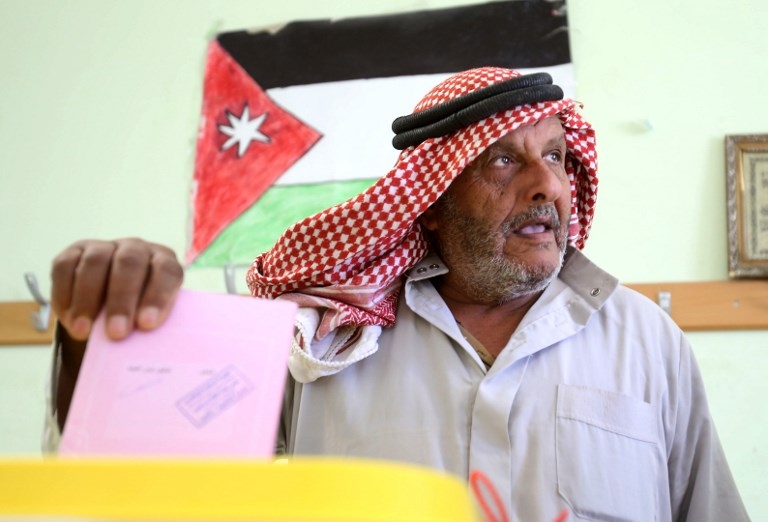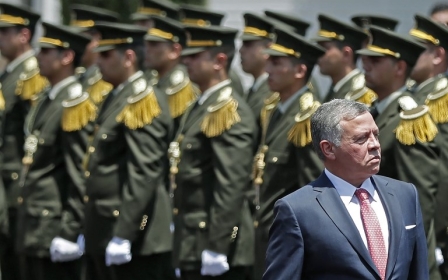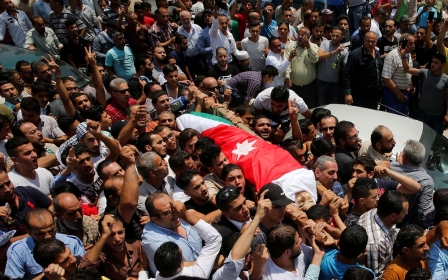More power to the people: Why the local elections in Jordan matter

The elections held this past week in Jordan represent an important turning point in the country for several reasons, mainly because, for the first time in the kingdom’s history, they will bring localised powers to cities and rural areas.
But the elections are also significant because all political forces in the country participated, including the Muslim Brotherhood, the largest opposition bloc that ended a decade-long boycott to take part. So the elections were also a litmus test for the Islamic movement to see where it stood after the setbacks it has suffered in other countries.
For the past seven decades, Jordan has been governed solely by elected members of parliament and a government appointed by the king. Nobody has been able to the contest the work of government departments and the king, not even elected parliamentary MPs who seem to be on an “official holiday” most of the time.
Why now?
With this election, Jordan will devolve some of its powers to local councils and municipalities, a move which will fundamentally change the way the political systems work in the country - and one which has been a source of controversy in the kingdom's political circles since the decentralisation law was passed in 2015.
According to Jordanian political circles and a senior official in one of the country’s political parties, decentralisation in Jordan is part of the country’s wider efforts to prepare for potential radical developments that the Palestinian issue may undergo in the post-Abbas era.
Indeed, the idea of restoring the “guardianship of Jordan” to the West Bank is being raised by some politicians. This guardianship could be implemented if Palestinians in the West Bank were allowed to elect their own local councils. These councils, which would be supervised by the Jordanian government, would offer an alternative formula of autonomy – and, at the same time, would also be accepted by the Israelis.
While that scenario – and others - remain merely speculative, the political system in Jordan, with these newly elected councils created from scratch, is clearly undergoing an important transformation. The new councils are likely to be involved in the decision-making and work of the central government which is appointed by the king and other senior officials of the executive branch.
It was for this reason, an Islamist candidate told me, that the Muslim Brotherhood and its political wing, the Islamic Action Front party, invested all their forces to participate in the elections and make as many gains as possible.
Steep challenges
Even so, ahead of the polls, many believed that there would be a retreat in support for the group given the challenges it has faced both domestically and regionally:
- Twice in recent years, the group had been subject to attempts to split it. One of these attempts ended with dissenters seizing many of the properties of the group after the conflict and the intervention of the government and the judiciary.
- The 2013 coup in Egypt, which saw the collapse of the Muslim Brotherhood-led government and the imprisonment of most of its leadership, raised expectations that the movement would relapse in the entire Arab world, including Jordan. It was only until the 2016 elections and now these local elections that it became clear that the Jordanian Islamic movement had not been significantly impacted.
- In the wake of the Arab Spring, Saudi Arabia, Egypt and the United Arab Emirates (all Jordanian allies) listed the Brotherhood as a terrorist group. This was also expected to negatively affect the popularity of the Muslim Brotherhood, especially since Saudi Arabia has wide religious influence on the Arab world.
Still got it
But ultimately, the movement received a level of support similar to what it had achieved before these challenges, showing that the Brotherhood still enjoys wide support in the country.
First, out of six major municipalities - which control local services - that the Islamic movement tried to win, they gained control of three, including Zarqa, the largest municipality after Amman.
As for the local councils, which are more important because they will actually govern cities and areas (while the municipalities handle services), 25 out of the 48 Brotherhood candidates who ran for election won, and the group now has representation in the local governments of eight major cities in Jordan.
Secondly, through these elections, the Muslim Brotherhood has become an integral part of the Jordanian state, now occupying 11 percent of seats in parliament, running three of the largest municipalities and with representatives in the local governments of eight major cities, including Amman. The group has returned to lead the Jordanian political scene and it will be impossible to deal with them as a terrorist organisation or banned group.
Thirdly, these elections and their results show that the Muslim Brotherhood still has the ability to attract electoral votes, which should mean the end of attempts to split the movement, especially given that dissidents pushing for the split failed to make any gains in either the parliamentary elections last year or this week’s polls.
This week has clearly brought significant change to the political system in Jordan, with greater popular representation than ever before. Some people worry that by devolving power to local councils, the government is simply pacifying the electorate: if they demand greater government accountability at a national level, now the state can say, well, you have local government. So that remains a concern.
But more widely, the election results send a very important message domestically and regionally, particularly to Jordan's allies who have branded the Muslim Brotherhood as a terrorist group: the movement is a critical part of the Jordanian government, a fact that cannot be ignored.
- Mohammad Ayesh is an Arab journalist currently based in London.
The views expressed in this article belong to the author and do not necessarily reflect the editorial policy of Middle East Eye.
Photo: A Jordanian man casts his ballot at a polling station in the capital Amman on 20 September 2016 during parliamentary elections. (AFP)
New MEE newsletter: Jerusalem Dispatch
Sign up to get the latest insights and analysis on Israel-Palestine, alongside Turkey Unpacked and other MEE newsletters
Middle East Eye delivers independent and unrivalled coverage and analysis of the Middle East, North Africa and beyond. To learn more about republishing this content and the associated fees, please fill out this form. More about MEE can be found here.





